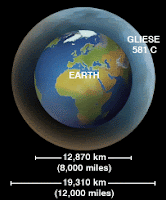 If the only jokes you receive are through e-mail.
If the only jokes you receive are through e-mail. If your idea of good interpersonal communication means getting the decimal point in the right place.
If you have used coat hangers and duct tape for something other than hanging coats and taping ducts.
If your ideal evening consists of fast-forwarding through the latest sci-fi movie looking for technical inaccuracies.
If you have "Dilbert" comics displayed anywhere in your work area.
If you carry on a one-hour debate over the expected results of a test that actually takes five minutes to run.
If a team of you and your co-workers have set out to modify the antenna on the radio in your work area for better reception.
If you ever burned down the gymnasium with your Science Fair project.
If you have never backed-up your hard drive.
If the salespeople at
If you still own a slide rule and you know how to work it.
If you rotate your screen savers more frequently than your automobile tires.
If your I.Q. number is bigger than your weight.
If the microphone or visual aids at a meeting don't work and you rush up to the front to fix it.
If you can remember 7 computer passwords but not your anniversary.
If you have ever owned a calculator with no equal key and know what RPN stands for.
If you can type 70 words a minute but can't read your own handwriting.
If you have more friends on the Internet than in real life.
If you think that when people around you yawn, it's because they didn't get enough sleep.
If your three year old son asks why the sky is blue and you try to explain atmospheric absorption theory.




